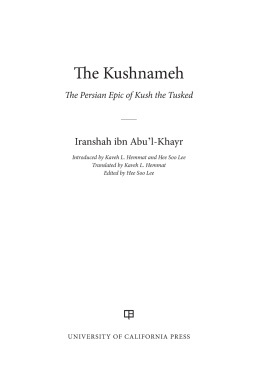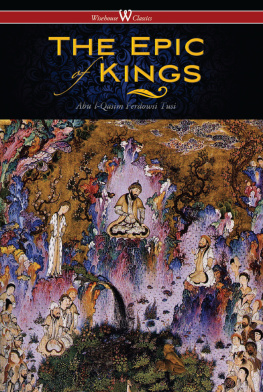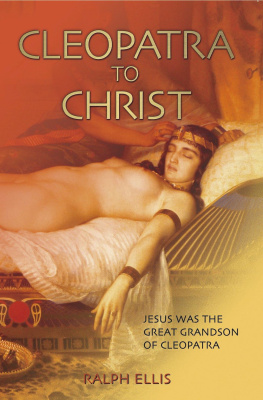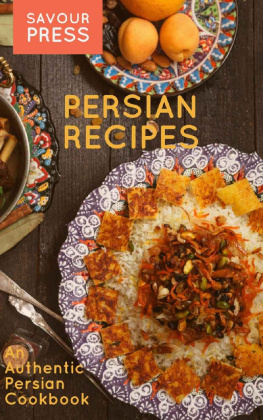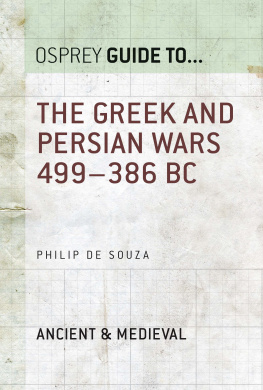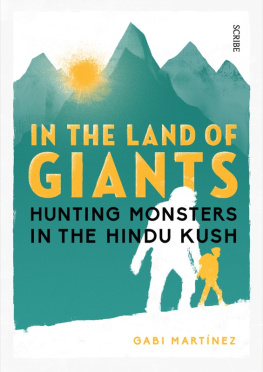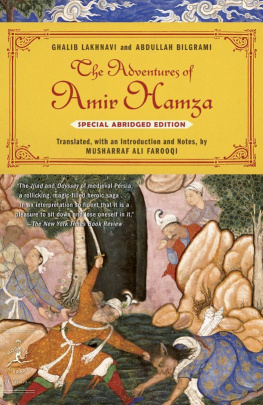The publisher and the University of California Press Foundation gratefully acknowledge the generous support of the Joan Palevsky Endowment Fund in Literature in Translation.
The Kushnameh
The Persian Epic of Kush the Tusked
Iranshah ibn Abul-Khayr
Introduced by Kaveh L. Hemmat and Hee Soo Lee
Translated by Kaveh L. Hemmat
Edited by Hee Soo Lee

UNIVERSITY OF CALIFORNIA PRESS
University of California Press
Oakland, California
2022 by Hee Soo Lee
Library of Congress Cataloging-in-Publication Data
Names: rnshh ibn Ab al-Khayr, active 11th century, author. |Hemmat, Kaveh L., translator. | Yi, Hi-su, editor.
Title: The Kushnameh : the Persian epic of Kush the Tusked / Iranshah ibn Abul-Khayr; introduced by Kaveh L. Hemmat and Hee Soo Lee ; translated by Kaveh L. Hemmat ; edited by Hee Soo Lee.
Other titles: Kshnmah. English
Description: [Oakland, California] : [University of California Press], [2022] | Includes bibliographical references and index.
Identifiers: LCCN 2021038164 (print) | LCCN 2021038165 (ebook) | ISBN 9780520385306 (paperback) | ISBN 9780520385313 (ebook)
Subjects: LCSH : Epic poetry, PersianTranslations into English.
Classification: LCC PK 6477. I 68 K 8713 2022 (print) | LCC PK 6477.I68 (ebook) | DDC 891/.5511dc23/eng/20211122
LC record available at https://lccn.loc.gov/2021038164
LC ebook record available at https://lccn.loc.gov/2021038165ClassifNumberPubDate
DeweyNumberdc23CatalogNumber
Manufactured in the United States of America
28 27 26 25 24 23 22
10 9 8 7 6 5 4 3 2 1
CONTENTS
ACKNOWLEDGMENTS
In the early 2000s, while working with Iranian scholars to locate material related to ancient and medieval Korea described in Persian manuscripts, I came across The Kushnameh, a Persian epic and part of a mythical history of Iran written by Iranshah b. Abul-Khayr between the years 1108 and 1111. Not only was the book not well known to Korean scholars, but I was surprised to learn that the land of Besila that appears in the book refers to the ancient Korean kingdom of Silla. As a scholar who has studied historical encounters between Korea and the Middle East, the Besila story in The Kushnameh, although in the form of an epic romance, was of extraordinary interest to me. I thus worked with Daryoosh Akbarzadeh to translate the parts of The Kushnameh set in Korea into Korean, using Jall Matns edition of the text. As a result of this work, over the past decade, three international conferences on The Kushnameh were held in Seoul, Tehran, and Istanbul.
It was my great luck to meet Kaveh Hemmat, and I suggested he translate The Kushnameh into English in order to share it with a wider audience of researchers and readers. With the support of the Korean Studies Promotion Services, in 2017 Dr. Hemmat began this translation, based on the British Library manuscript, OR 2780. Thanks to his efforts, I hope that the scholarly world and ordinary readers with an interest in Persian literature and historical interactions between Korea and the Middle East will find this book useful.
In truth, our research on The Kushnameh, including this translation, would not have been possible without generous support from the government of Korea. This work was supported by the Laboratory Program for Korean Studies through the Ministry of Education of the Republic of Korea and by the Korean Studies Promotion Service of the Academy of Korean Studies (AKS 2015 LAB 1250001).
Finally, special words of appreciation go to Nam-Kyu Min and Kyoo Chul Moon, both of whom provided unwavering support and patient advice throughout the research process. I would also like to thank the University of California Press for their interest in the book, especially Eric Schmidt and the editorial staff for their professional advice and cooperation during all stages of production.
Hee Soo Lee
June 2021
The present work is only one of the more visible results of a long, collaborative endeavor, and I am grateful for the support of Hee Soo Lee and other members of the project for all their work. I would like to thank Cameron Cross and Austin OMalley, much more knowledgeable scholars of Persian literature than myself, for their early feedback on the translation. My thinking about the text has benefited greatly from conversation with colleagues in the Great Lakes Adiban Society, including Alexandra Hoffmann, Rachel Schine, Sam Lasman, and Paul Losensky. Special thanks are due to editors Eric Schmidt and Cindy Fulton and copyeditor Caroline Knapp for their patience, diligence, and speed in helping to bring this volume to the public. I would also like to thank my father, Amrollah Hemmat, a far more accomplished translator than myself, for encouraging me to take on this project with the advice that one learns the art of translation from the many hours spent doing the work. I wish to express gratitude and appreciation to my young daughter, Veda, for her patience while I was at the computer even more than usual, and for her persistent curiosity, which brings me joy every day. Finally, and most of all, I would like to thank my partner, zge Kocak Hemmat, the love of my life, for her encouragement, patience, and feedback, for being not only my closest and dearest companion, but a partner in reading and thinking.
Kaveh Hemmat
June 2021
NOTE ON THE TEXT
The present translation is based on the sole manuscript of the Kushnameh, held in the British Library, OR 2780. The line numbers follow Jall Matns edition, and manuscript folio numbers are provided in brackets. The manuscript has a number of section headings, which appear in capitals; additional section headings added for this edition are marked with square brackets. The section headings in OR 2780 do not always appear consistently, except in the case of the letters written by characters in the story, which do, as a rule, have section headings. For the readers convenience, the book has been divided into numbered chapters defined by major transition points. Unreadable passages and apparent lacunae in the manuscript are marked with ellipses.
Introduction
THE KUSHNAMEH AND THE GLOBAL MIDDLE AGES
The Kushnameh , meaning The Epic of Kush , is an epic about a monstrous king with tusks and ears like an elephant. The story takes place across a vast geography that spans most of the Eastern Hemisphere, from China and Korea in the east to the Pyrenees and the Sahara in the west. Insofar as one can speak of medieval globalizationa process of encounter and increasing connectedness driven by the rise of diverse literate, urban societies across the Eastern Hemisphere, and an increasing consciousness of how large and how diverse the world was The Kushnameh can be considered an epic of the global Middle Ages.
The Kushnameh not only reflects, but also reflects on the great size and diversity of the world and its peoples. As part of a deeply political literary tradition in which kingship is a core theme, The Kushnameh grapples with the intellectual and political challenges and opportunities these discoveries posed for the imperial traditions of Persia, Rome, and Islam. Building on the Sistani epic cycleheroic stories that made up the most famous portions of great Persian Epic of Kings (The Shahnameh) and on the example of Pseudo-Callistheness Alexander Romance , The Kushnameh enlarges both the geography and thematic depth of the epic tradition. However, it also does not represent a full-fledged transformation of the epic tradition into the erudite, cerebral, virtuosic works that would be undertaken by later poets such as Nezami of Ganja and Amir Khosrow of Delhi. Instead, it stands somewhere in the middle: a heroic epic full of action and drama that ventures beyond the already rich example of The Shahnameh to explore both the most distant corners of the known world and the depths of evil concealed within the human psyche.

